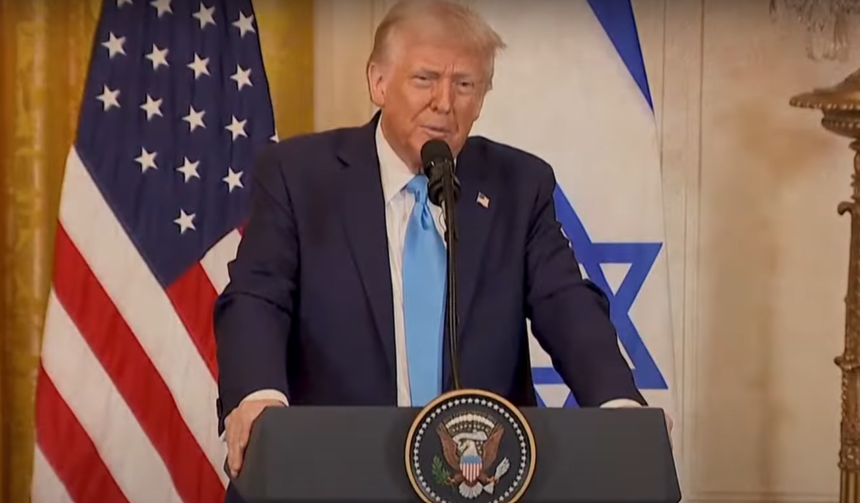In a stunning and unprecedented move, former President Donald Trump has announced his intention to take control of the Kennedy Center for the Performing Arts by dismissing several board members and appointing himself as chairman. This decision has sparked intense debate, raising serious concerns about the future of the prestigious institution, its governance, and the intersection of politics and the arts in the United States.
Trump’s Announcement: The Shockwave in Washington
On February 7, 2025, Trump took to his social media platform, Truth Social, to make the announcement that shook the political and cultural spheres. He stated:
“At my direction, we are going to make the Kennedy Center in Washington, D.C., GREAT AGAIN. I have decided to immediately terminate multiple individuals from the Board of Trustees, including the Chairman, who do not share our vision for a Golden Age in Arts and Culture. The radical left has turned the Kennedy Center into a political theater for their woke agenda—this stops now!”
The former president’s statement came as a direct attack on the current leadership of the Kennedy Center, particularly targeting Chairman David M. Rubenstein, a well-known philanthropist and financial expert. Rubenstein, who has been instrumental in the development of the Kennedy Center for over a decade, has reportedly been blindsided by Trump’s move.
Trump’s decision to take over the board was met with immediate backlash, with critics calling it an overreach of power that could politicize the nation’s most renowned cultural institution.
Why the Kennedy Center Matters
The John F. Kennedy Center for the Performing Arts was established in 1958 and officially opened in 1971 as a living memorial to President John F. Kennedy. Over the decades, it has been home to some of the most iconic performances in American history, hosting Broadway shows, classical music performances, ballet, jazz concerts, and prestigious awards such as the Kennedy Center Honors.
The institution has remained bipartisan, with board members appointed by various U.S. presidents. Traditionally, the chairman is appointed through a board vote, not by executive decision. However, Trump’s direct intervention into the Center’s affairs has raised serious concerns about the politicization of one of America’s most important cultural landmarks.
The Major Changes Trump Plans to Implement
Following his announcement, Trump outlined a series of radical changes that he intends to implement at the Kennedy Center:
- A Shift Away from “Woke Culture” – Trump criticized the Kennedy Center for hosting events such as drag performances, gender-fluid theater productions, and progressive-themed performances. He promised that under his leadership, “traditional American values” would be restored.
- Elimination of Current Board Members – Multiple longtime board members have been reportedly informed of their immediate dismissal. Among those expected to be replaced are prominent arts advocates, philanthropists, and bipartisan appointees.
- New Funding Structure – Trump has hinted at revamping the funding model for the Kennedy Center by focusing on private donors and conservative investors, rather than relying on federal funding.
- Increased Support for Conservative Artists – The former president has pledged to open doors for artists who he claims have been blacklisted by Hollywood and the leftist arts community.
- Trump-Branded Events – Sources close to Trump have indicated that he plans to host several pro-America events at the Kennedy Center, including a MAGA film festival, a country music awards night, and special patriotic-themed performances.
Backlash from the Arts Community
The announcement has sent shockwaves through the arts and entertainment world, with many industry leaders, actors, musicians, and playwrights voicing their outrage.
Lin-Manuel Miranda, creator of Hamilton, tweeted:
“The Kennedy Center is meant to celebrate the arts in all its forms—not be turned into a political circus. This is a travesty.”
Alyssa Milano, a longtime critic of Trump, also took to social media, calling the move “the death of artistic freedom.”
Meanwhile, major organizations such as the National Endowment for the Arts (NEA) and the American Theater Wing have called on Congress to intervene, stating that Trump’s takeover could set a dangerous precedent for cultural institutions nationwide.
Legal Battles: Can Trump Actually Take Over?
While Trump has announced his intention to remove and replace the Kennedy Center Board, legal experts argue that his authority over the institution is limited.
Under the Kennedy Center Act, the Board of Trustees operates independently, and while the president does have the power to appoint some members, he cannot unilaterally fire the chairman or dictate board leadership.
However, Trump’s strong influence over conservative lawmakers could lead to Congressional action that might reshape how the Kennedy Center is governed.
What’s Next? The Battle for the Kennedy Center
As the controversy unfolds, all eyes are now on the Kennedy Center Board and the legal teams assessing Trump’s power play.
Several board members are expected to challenge Trump’s moves, and legal injunctions may be filed to prevent his immediate takeover.
Meanwhile, Trump’s supporters are celebrating this as a victory against “leftist” control of American culture, calling it a necessary step toward preserving traditional values in the arts.
In the coming weeks, this issue is likely to escalate, with possible Congressional hearings, legal battles, and public protests from artists, musicians, and cultural advocates.
Final Thoughts: A Turning Point in American Arts
The Kennedy Center takeover is more than just a political maneuver—it is a cultural battle over the direction of the arts in America.
Whether or not Trump succeeds in his efforts, this move has already reignited debates over the role of government influence in cultural institutions and the future of artistic expression in the country.
One thing is certain: the arts community will not back down without a fight.






